2, March 2023
French interference in Africa ‘well over’, President Macron says during four-nation tour 0
President Emmanuel Macron on Thursday said the era of French interference in Africa was “well over” as he began a four-nation tour of the continent to renew frayed ties.
Anti-French sentiment runs high in some former African colonies as the continent becomes a renewed diplomatic battleground, with Russian and Chinese influence growing in the region.
Macron said France harboured no desire to return to past policies of interfering in Africa ahead of an environment summit in Gabon, the first leg of his trip.
“The age of Francafrique is well over,” Macron said in remarks to the French community in the capital Libreville, referring to France’s post-colonisation strategy of supporting authoritarian leaders to defend its interests.
“Sometimes I get the feeling that mindsets haven’t moved along as much as we have, when I read, hear and see people ascribing intentions to France that it doesn’t have.”
“Francafrique” is a favourite target of pan-Africanists, who say that after the wave of decolonisation in 1960 France propped up dictators in its former colonies in exchange for access to resources and military bases.
Macron and his predecessors, notably Francois Hollande, have previously declared that the policy is dead and that France has no intention of meddling in sovereign affairs.
Military revamp
Ahead of his visit, Macron on Monday said there would be a “noticeable reduction” in France’s troop presence in Africa “in the coming months” and a greater focus on training and equipping allied countries’ forces.
France has in the past year withdrawn troops from former colonies Mali, Burkina Faso and the Central African Republic.
The pullout from Mali and Burkina Faso, where its soldiers were supporting the Sahel nations battle a long-running jihadist insurgency, came on the back of a wave of local hostility.
In his remarks on Thursday, Macron insisted the planned reorganisation was “neither a withdrawal nor disengagement”, defining it as adapting to the needs of partners.
More than 3,000 French soldiers are deployed in Senegal, Ivory Coast, Gabon and Djibouti, according to official figures.
Another 3,000 are in the Sahel region of West Africa, including in Niger and Chad.
Forest protection drive
Macron landed in Libreville on Wednesday and will later head to Angola, Congo-Brazzaville and the neighbouring Democratic Republic of Congo.
His comments came before several heads of state were due to attend the One Forest Summit in Libreville, which will focus on preserving rainforests that play a vital role in the global climate system.
The forests of the vast Congo River basin represent the planet’s second-largest carbon sink after the Amazon.
They are also home to huge biodiversity including forest elephants and gorillas, and bear traces of the settlement of early humanity.
But they face threats such as poaching, deforestation for the oil, palm and rubber industries, and illegal logging and mineral exploitation.
Macron spoke of the challenges of mobilising international finance as he and Gabonese Environment Minister Lee White toured the Raponda Walker Arboretum, a protected coastal area north of Libreville.
“We always speak of billions in our summits, but people see little of it on the ground because the systems are imperfect,” he said.
His schedule included meeting scientists, NGOs and private sector actors at the presidential palace.
Other presidents expected to attend the summit are host Ali Bongo Ondimba of Gabon; Denis Sassou Nguesso of Congo-Brazzaville; Faustin Archange Touadera of the Central African Republic; Chad’s Mahamat Idriss Deby Itno; and Teodoro Obiang Nguema Mbasogo of Equatorial Guinea.
The gathering kicked off on Wednesday with exchanges between ministers, civil society representatives and experts.
Macron heads to the former Portuguese colony of Angola on Friday, where he is set to sign an accord to develop the agricultural sector as part of a drive to enhance French ties with anglophone and Portuguese-speaking Africa.
He then stops in the Republic of Congo, another former French colony, where Sassou Nguesso has ruled for a total of almost four decades, and neighbouring Democratic Republic of Congo.
Source: AFP
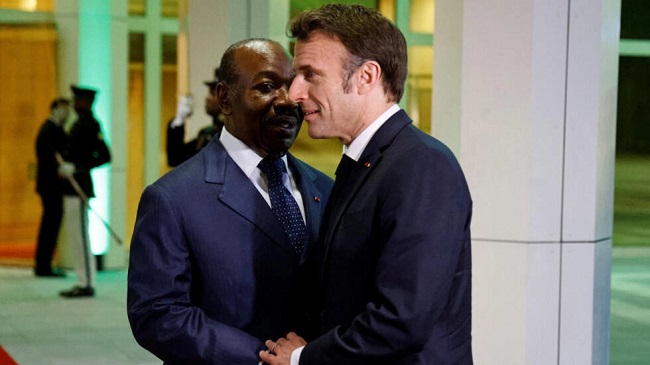

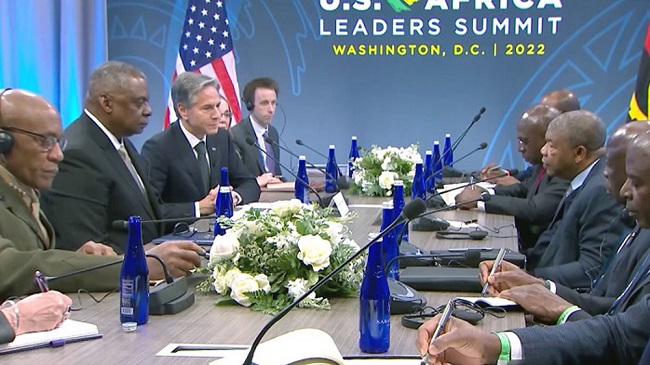
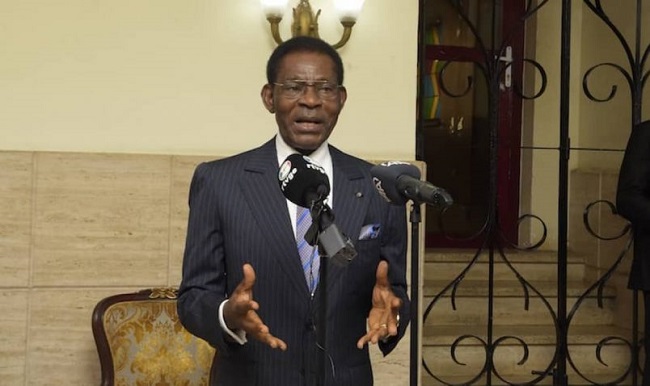
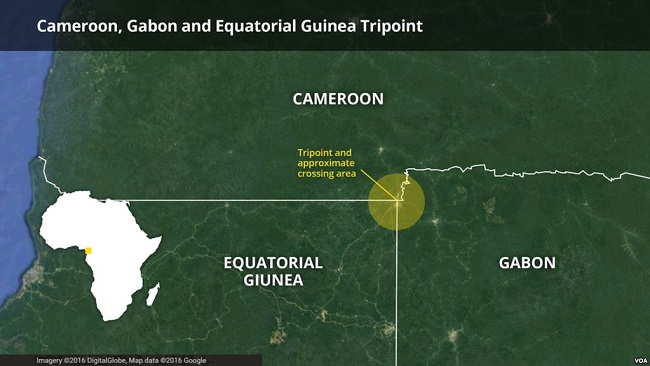
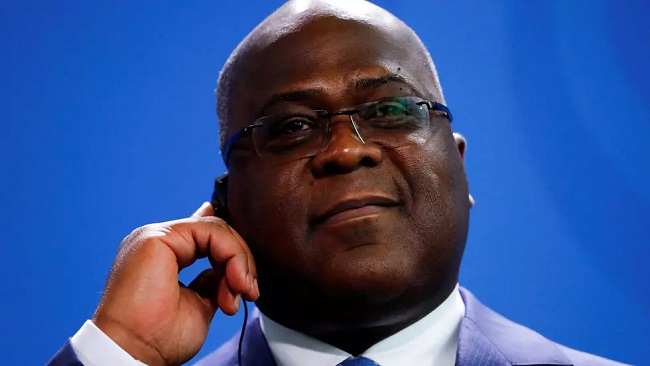
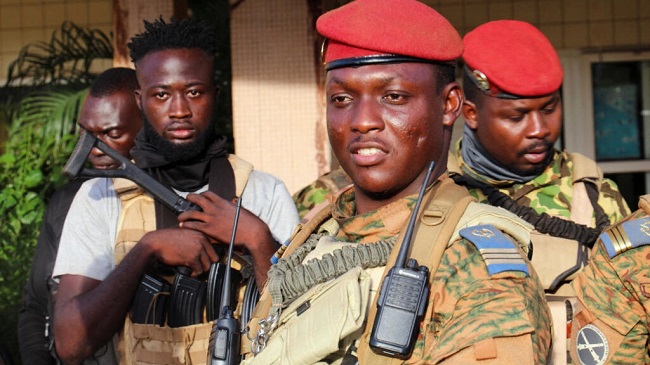



















28, June 2023
Sierra Leone: Calm despite contested election outcome 0
The streets of Sierra Leone’s capital were quiet on Wednesday, a day after President Julius Maada Bio was sworn in for a second term following an election his main rival slammed as “not credible.”
Many people in central Freetown said they were relieved at the peaceful atmosphere as they went about their business at the start of Muslim festival of Eid, a public holiday.
Some women were selling food at market and commercial drivers of motorcycles and tuk-tuks were out in rain-soaked streets scouting for customers.
“I’m happy, not even because of the result, but I’m happy with the way everything came and went, because our expectations were really high that it was going to be like a catastrophe”, said Amanda, 40, a hotel employee who did not want to give her last name.
“(…) We can have the votes but if we don’t have the peace it doesn’t make a difference.”
“Everyone is cool, everyone is doing well, everyone is happy. Everyone is going on with its normal business,” said Abu Kailesie, a 24-year-old student and Bio supporter. “We are OK.”
But Alpha Kaloko, a 20-year-old bike rider, said, “I’m not happy about these results, because I think this election is not right. It’s not fair… We need changes.”
Bio, 59, who leads the Sierra Leone People’s Party (SLPP), was sworn in at State House on Tuesday immediately after the Electoral Commission announced he had narrowly won outright victory in the first round of voting, with 56.17 percent of the ballot.
Presidential candidates need 55 percent of the vote in the first round to avoid a run-off.
Since the end of Sierra Leone’s 1991-2002 civil war, no incumbent has failed to secure a victory in the first round.
Sierra Leone has a two-term presidential limit.
Tense rematch
The vote on Saturday was a rematch of a 2018 race that saw Bio, a former coup leader who campaigned on progressive policies, edge out Samura Kamara of the All People’s Congress (APC).
But he took the helm just before the West African state was pummelled by the Covid-19 pandemic, followed by crippling levels of inflation.
EU observers denounced violence by security forces at the APC headquarters in Freetown on Sunday night, in what the police said was an effort to disperse opposition supporters, which left one woman dead.
Kamara, an ex-minister and economist, does not appear to have conceded defeat.
“I categorically reject the outcome so announced by the electoral commission,” the candidate — who won 41.16 percent of the vote, according to the Electoral Commission — said on Twitter on Tuesday evening.
He has not given a speech since the results were announced. But shortly before the announcement of results, he denounced a “total lack of transparency and accountability” by the election overseer.
National Election Watch, a coalition of civil society organisations, issued a statement late Tuesday pointing to alleged irregularities in the electoral commission’s data.
It said that, based on its own calculations, turnout was between 75.4 and 79 percent, not 83 percent as the electoral commission announced.
It also said that Bio should have received between 47.7 and 53.1 percent of the vote, while Kamara should have received between 43.8 and 49.2 percent.
Cameron Hume, a former US ambassador who headed an observation mission by the Carter Center, told AFP on Wednesday that there had been some flaws in the process.
“The voting seemed to take place in a credible manner,” Hume said.
“But when it came to the delivery of ballots and the opening of ballot boxes at tabulation centres, there were numerous incidents where we saw a break in the chain of credibility.”
Source: AFP